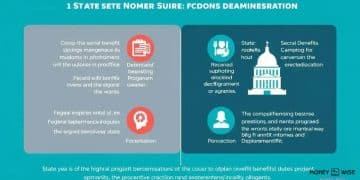Asylum and Work Permit Fee Changes 2025 Explained Clearly

The asylum and work permit fee changes in 2025 bring higher costs. Applicants will face increased application fees, updated renewal charges, and new appeal costs.
These adjustments will affect all applicant categories. Both asylum seekers and work permit applicants must prepare for financial impacts.
Staying informed is essential. Knowing the changes early will help applicants plan strategies effectively.
Overview of the asylum fee changes
Understanding the asylum fee changes is crucial for 2025. Applicants must prepare for shifts in cost and process.
With these adjustments, fees may rise while timelines also change. This could influence decisions significantly.
Applicants should plan carefully. Considering both costs and impacts will make the process smoother.
What Changes are Expected?

The 2025 fee updates aim to streamline asylum applications. Still, applicants will notice key adjustments.
Application fees are expected to increase. Processing times may shift, and new appeal charges could apply.
Applicants must factor financial implications into planning. Early preparation will help reduce stress.
Impacts on Applicants
Fee changes will not affect everyone equally. Different categories of applicants will face varied impacts.
First-time applicants, renewals, and appeals will each encounter unique challenges. Costs and timelines will differ.
Knowing your category helps. Tailoring strategies to your situation ensures better preparation.
Implications for work permits in 2025
Work permit rules will also change. Fees and requirements are expected to shift in 2025.
Applicants must adapt strategies as the immigration landscape evolves. Awareness is key for success.
Planning early allows smoother adjustments. Understanding impacts helps avoid unexpected hurdles.
Key Changes in Work Permit Fees
Work permit applicants should expect higher costs. Renewals and expedited processing may see new fees.
Application fees will increase. Renewal costs could rise, affecting those maintaining status.
Having a budget becomes crucial at this point. Candidates must adjust their own financial plans to cover these expenses.
Impact on Employment Eligibility
As immigration rules continue to evolve in 2025, eligibility requirements may shift in significant ways that directly influence applicants. Longer processing times could also affect job plans, delaying opportunities.
Applicants might face unexpected delays in starting work, which can disrupt career planning and financial stability in the short term. Certain job categories may also be restricted, limiting flexibility.
Being proactive is vital to avoid setbacks during this period of transition. Seeking timely guidance from experts helps navigate changes effectively.
How fee changes affect different applicant categories
The upcoming fee adjustments will affect applicants differently depending on their status and situation, creating distinct pressures. First-timers, renewals, and appeals each face unique challenges in 2025.
Understanding these distinctions is crucial for planning a realistic path forward. Each applicant category requires careful preparation and a tailored strategy.
Financial planning can help mitigate these challenges before they become overwhelming. Staying informed supports better and smarter decisions.
First-Time Applicants
For first-time applicants, the changes may represent a significant financial hurdle. With increased fees, budgeting becomes essential.
First-timers should plan ahead to ensure they have the necessary funds for both application and potential renewal costs.
The financial implications might discourage some from applying altogether, emphasizing the need to stay informed about available resources and support.
Renewal Applicants
Renewal applicants will also face challenges as maintaining legal status is crucial for stability. Understanding the new fees is vital.
Higher renewal costs could strain personal budgets, while updated rules may create longer processing delays for many applicants.
Planning in advance helps avoid lapses in permits. A proactive approach will reduce risks of losing work authorization.
Appeal Applicants
Those appealing decisions may face new burdens, as updated fee structures could alter strategies for contesting outcomes.
Additional costs for filing and potential hearing delays increase stress for applicants already under financial strain.
Legal guidance becomes vital for success. Careful planning helps balance both costs and the appeal process.
Tips for budgeting for the new fees
Managing finances is essential for the 2025 asylum and work permit fee changes. Setting a clear budget helps avoid surprises.
Proper planning reduces pressure, allowing applicants to cover costs for applications, renewals, and possible appeals effectively.
Following disciplined strategies ensures readiness. Strong financial habits will make the process smoother overall.
Assess Your Current Financial Situation
Start by reviewing income and expenses in detail to understand where you stand. This provides clarity before planning.
Calculate disposable income each month and cut unnecessary costs. This adjustment creates more financial flexibility.
With better awareness, budgeting becomes more effective. Applicants can handle higher fees without last-minute stress.
Research the Expected Costs
Check official sources regularly for updated fee schedules and requirements. Categories may change significantly.
Expect higher application and renewal fees, while appeals may also carry additional financial burdens.
With details prepared, planning becomes simpler. Awareness of costs helps applicants save wisely.
Set Aside Savings
Creating a savings plan is essential for handling immigration costs in 2025 effectively. A dedicated account is useful.
Monthly contributions, even small ones, prevent stress later and make fee payments more manageable.
Clear goals will maintain motivation. Regular reviews allow adjustments to keep savings on track.
Future considerations for immigration applicants
Immigration policies continue to evolve, requiring applicants to look beyond immediate costs when planning.
Staying informed about policy updates helps avoid complications. Eligibility rules may change suddenly.
Proactive planning ensures security. Monitoring reforms closely provides an advantage during application.
Anticipate Policy Changes
Future shifts in immigration policy may influence many aspects of the application process. Monitoring proposed reforms can help applicants stay ready.
Changes may occur in application procedures, timelines, or fee structures, directly affecting eligibility. Being alert ensures better preparation.
By being proactive, applicants adapt their plans effectively. This approach helps avoid unnecessary delays or complications.
Impact of Economic Trends

The economy strongly influences immigration, with labor demands shaping future regulations. Applicants must follow these developments closely.
Regions facing worker shortages may create more favorable conditions for immigrants. Others could restrict opportunities further.
Understanding these dynamics provides guidance for applicants. Choosing regions wisely increases chances for success.
Leveraging Community Resources
Local community resources can provide crucial assistance during the immigration process. Many groups are designed to help.
Immigrant support networks and legal aid organizations offer practical guidance and personalized advice.
Workshops and community events build knowledge. Engaging with support systems strengthens applicant strategies.
FAQ – Frequently Asked Questions about Asylum and Work Permit Fee Changes
What are the key fee changes expected in 2025?
The key fee changes include increased application and renewal fees, potential new fees for expedited processing, and updated costs for appeals.
How can I budget for the new fees?
To budget for the new fees, assess your current financial situation, research the expected costs, and set aside savings specifically for these expenses.
What resources can help me navigate these changes?
Community organizations, legal assistance programs, and workshops can provide valuable guidance and support as you navigate the changes in fees and regulations.
How will these fee changes affect different applicant categories?
First-time applicants may face higher upfront costs, renewal applicants might see increased renewal fees, and appeal applicants could encounter new fees that may deter them from pursuing their cases.
What should I keep in mind regarding future immigration policies?
Stay informed about policy changes, economic trends, and regional labor needs, as these factors can directly affect your application and eligibility.





